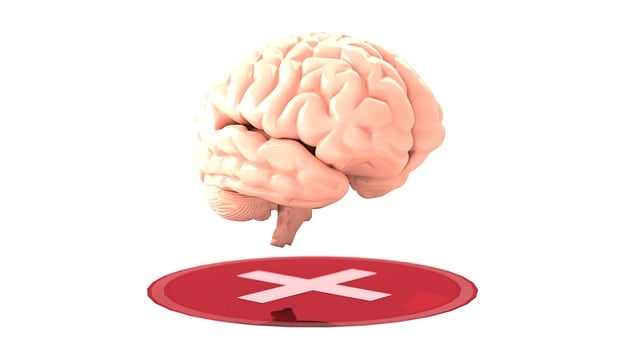Anxiety among young adults in demanding work environments is a growing concern. This text explores addressing these issues through tailored therapy, Mental Health Policy Advocacy, stress management workshops, and fostering open mental health awareness. Strategies include Cognitive Behavioral Therapy (CBT), mindfulness practices, and setting clear work-life boundaries to reduce workplace stress and anxiety, empowering individuals for professional success and well-being.
Anxiety among young adults is a pressing issue, especially within the workplace. This comprehensive guide explores the intricate relationship between anxiety and professional life, focusing on identifying triggers in job environments and the significant role of therapy. We delve into various effective treatment options tailored for young adults, from traditional to innovative approaches. Furthermore, practical techniques are presented to help individuals overcome workplace-related anxiety, fostering improved well-being and a healthier professional experience. Understanding anxiety’s impact and managing it effectively is key to navigating career paths with resilience.
- Understanding Anxiety in Young Adults: A Comprehensive Look at Workplace Issues
- Identifying Job Stress Triggers and Their Impact
- Exploring Effective Therapy Options for Managing Anxiety in the Professional Realm
- Practical Techniques to Overcome Workplace-Related Anxiety and Enhance Well-being
Understanding Anxiety in Young Adults: A Comprehensive Look at Workplace Issues

Anxiety among young adults has become a significant concern, especially within the workplace. This demographic often faces unique challenges that contribute to heightened stress levels and anxiety disorders. The demands of modern work environments, coupled with the pressure to excel in various roles, can take a toll on mental health. Many young adults struggle to balance their professional obligations while navigating personal responsibilities, leading to increased job-related stress.
Therapy for young adults addressing workplace issues is an essential aspect of comprehensive mental health care. It involves understanding and managing anxiety triggered by specific work-related factors. A Mental Health Policy Analysis and Advocacy approach can shed light on systemic changes needed in organizations to support employee well-being. Stress Management Workshops Organization initiatives can empower individuals with coping strategies, while fostering a culture of open Mental Health Awareness within workplaces is crucial for early intervention and reduced stigma.
Identifying Job Stress Triggers and Their Impact

Many young adults experience anxiety stemming from workplace issues and job stress. Identifying triggers specific to your work environment is a crucial step in managing anxiety effectively. Common stressors can range from heavy workloads, tight deadlines, and high-pressure situations to interpersonal conflicts or a lack of support from colleagues or supervisors. Understanding these triggers is the first step towards developing coping skills tailored to your unique experiences.
Through therapy for young adults, individuals can learn to recognize patterns and develop emotional intelligence to navigate workplace challenges with greater resilience. Cultivating emotional intelligence, combined with cultural sensitivity in mental healthcare practice, allows for a deeper understanding of how job stress impacts not just the mind but also overall well-being. This holistic approach to anxiety management, which includes coping skills development, can empower young adults to thrive professionally while maintaining mental health.
Exploring Effective Therapy Options for Managing Anxiety in the Professional Realm

Anxiety management is especially pertinent in the professional realm, where work-related stress and workplace issues can significantly impact young adults’ well-being. Exploring effective therapy options is a crucial step in tackling these challenges. Cognitive Behavioral Therapy (CBT), for instance, has proven to be highly effective in treating anxiety disorders by helping individuals identify and change negative thought patterns and behaviors contributing to their distress. This approach not only provides practical tools for managing symptoms but also enhances self-esteem and promotes healthier mood management.
Additionally, integrating self-care routine development into therapy can foster better mental health in the professional setting. Techniques such as mindfulness meditation, deep breathing exercises, and progressive muscle relaxation teach individuals effective coping strategies to navigate workplace pressures. By addressing underlying issues and implementing these therapeutic tools, young adults can improve their overall resilience, enabling them to handle job stress more effectively and maintain a healthier work-life balance.
Practical Techniques to Overcome Workplace-Related Anxiety and Enhance Well-being

Overcoming workplace anxiety is a crucial step for young adults navigating their careers and personal well-being. It’s important to note that many common stressors in the professional realm can be managed effectively through practical techniques. For instance, setting clear boundaries between work and personal life helps reduce job stress. Young adults can establish structured routines and allocate dedicated time for relaxation and hobbies outside of work hours. This balance promotes emotional healing processes and enhances overall mental health.
Additionally, practicing mindfulness and deep breathing exercises at the workplace can be a game-changer. These simple yet powerful tools help individuals stay grounded in the present moment, reducing anxiety-inducing thoughts. Public awareness campaigns development around stress management has also contributed to widespread knowledge about confidence-boosting techniques. By incorporating these strategies into their daily routines, young adults can address workplace issues head-on and foster a more positive and productive work environment.
Anxiety management is a crucial aspect of maintaining well-being, especially for young adults navigating workplace issues and job stress. By understanding the root causes, such as identifying specific triggers in the professional realm, individuals can develop effective strategies. This includes exploring diverse therapy options tailored to their needs and adopting practical techniques to overcome anxiety. With the right tools, young adults can enhance their resilience and foster a healthier work environment, ultimately improving overall mental health and job satisfaction.














